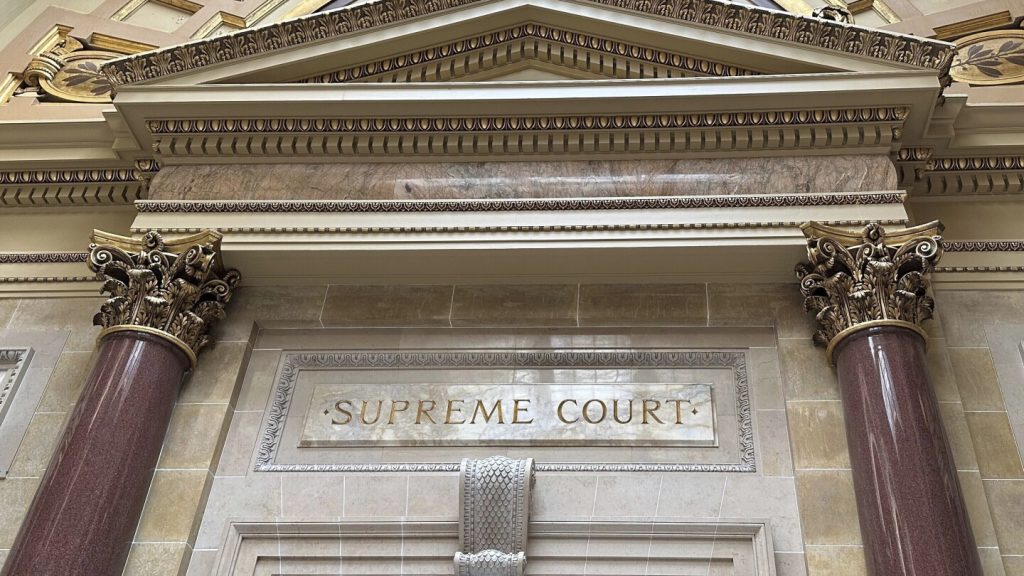The Wisconsin Supreme Court heard oral arguments on Tuesday in a case brought by conservative activist Ron Heuer and the Wisconsin Voters Alliance, seeking access to guardianship records to identify potential ineligible voters. Liberal justices on the court expressed concerns about the motives behind the request, suggesting that it may be an attempt to cast doubt on the integrity of elections in Wisconsin. The lawsuit raises questions about the balance between protecting personal privacy rights and ensuring that only eligible voters participate in elections, particularly in the wake of the 2020 presidential race.
Heuer and the WVA argue that there are discrepancies between the number of ineligible voters and the voter registration list in Wisconsin, prompting their request for access to guardianship records. They believe that making these records public will help prevent ineligible individuals from voting. However, opponents, including attorney Sam Hall representing Walworth County, argue that the government should handle such reviews confidentially and that releasing these records could put vulnerable individuals at risk. The case stems from a state appeals court ruling that deemed the guardianship records as public information, which prompted Walworth County to appeal to the state Supreme Court.
The Supreme Court’s ruling on the case is unlikely to come before the November election, but it has significant implications for voter access and election integrity in Wisconsin. Attorney Sam Hall raised concerns about the potential harm to vulnerable individuals if these records are made public and urged the court to consider the broader implications of the case. He also highlighted the need for a ruling that directly addresses the merits of the issue at hand rather than focusing solely on legal technicalities. The justices on the court, both liberal and conservative, raised questions about the legality and ethics of making guardianship records public.
The case brought by Heuer and the WVA is part of a broader effort to challenge the results of the 2020 presidential election in Wisconsin and cast doubt on the legitimacy of President Joe Biden’s victory in the state. Heuer’s involvement in the discredited 2020 election probe led by former Wisconsin Supreme Court Justice Michael Gableman has raised concerns about the validity of his claims and motivations. The WVA’s history of filing lawsuits to overturn Biden’s win in Wisconsin, despite multiple audits and reviews validating the election results, underscores the ongoing controversy surrounding election integrity and voter fraud claims.
The Wisconsin Supreme Court faces a challenging decision in this case, weighing the need to protect personal privacy rights against the importance of ensuring that only eligible voters participate in elections. The outcome of the lawsuit could have far-reaching implications for voter access and election integrity not just in Wisconsin but potentially across the country. As the court considers the arguments presented by both sides, it must navigate the delicate balance between transparency, privacy, and the fundamental principles of democracy. Ultimately, the ruling in this case will shape the future of voting rights and election processes in Wisconsin and beyond.


